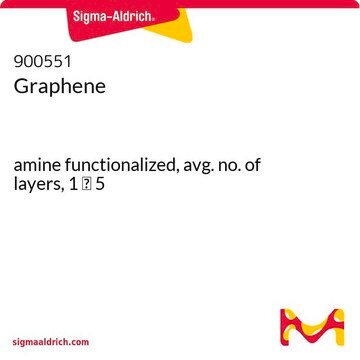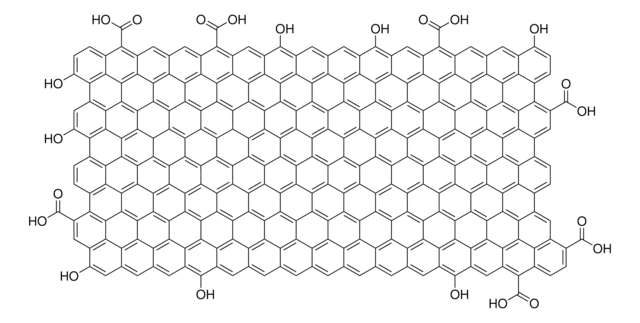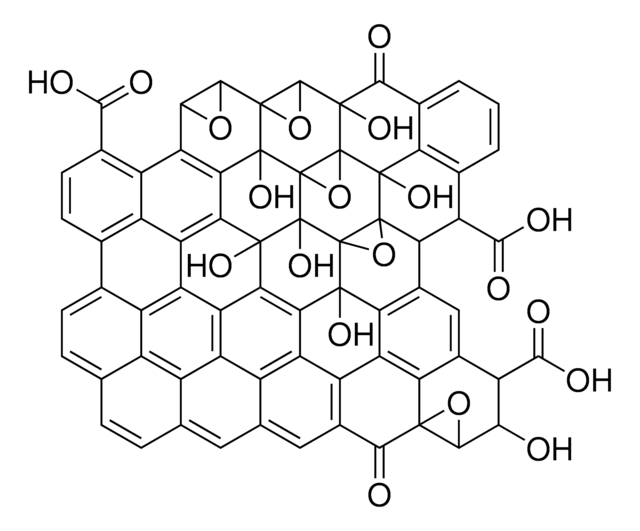795534
Graphene oxide nanocolloids
2 mg/mL, dispersion in H2O
Synonyme(s) :
NGO, nano-GO
About This Item
Produits recommandés
Forme
dispersion in H2O
Niveau de qualité
Caractéristiques du produit alternatif plus écologique
Design for Energy Efficiency
Learn more about the Principles of Green Chemistry.
sustainability
Greener Alternative Product
Concentration
2 mg/mL
Autre catégorie plus écologique
, Enabling
Description générale
Application
- Single-layer graphene oxide sheets
- Possible applications:
- Cellular Imaging
- Drug Delivery
- Nanomedicine
- Cancer therapy
Code de la classe de stockage
10 - Combustible liquids
Classe de danger pour l'eau (WGK)
WGK 2
Point d'éclair (°F)
Not applicable
Point d'éclair (°C)
Not applicable
Certificats d'analyse (COA)
Recherchez un Certificats d'analyse (COA) en saisissant le numéro de lot du produit. Les numéros de lot figurent sur l'étiquette du produit après les mots "Lot" ou "Batch".
Déjà en possession de ce produit ?
Retrouvez la documentation relative aux produits que vous avez récemment achetés dans la Bibliothèque de documents.
Articles
Graphene oxide, a monomolecular layer of graphite with oxygen functionalities, holds unique properties valuable for various applications in materials science.
CRISPR/Cas9 delivery via nonviral nanoparticles shows promising advancements for gene editing in disease treatment.
Since its discovery little more than a decade ago,1 the two-dimensional (2D) allotrope of carbon—graphene—has been the subject of intense multidisciplinary research efforts.
Novel Graphene‑Based Nanostructures Production, Functionalization, and Engineering
Notre équipe de scientifiques dispose d'une expérience dans tous les secteurs de la recherche, notamment en sciences de la vie, science des matériaux, synthèse chimique, chromatographie, analyse et dans de nombreux autres domaines..
Contacter notre Service technique






